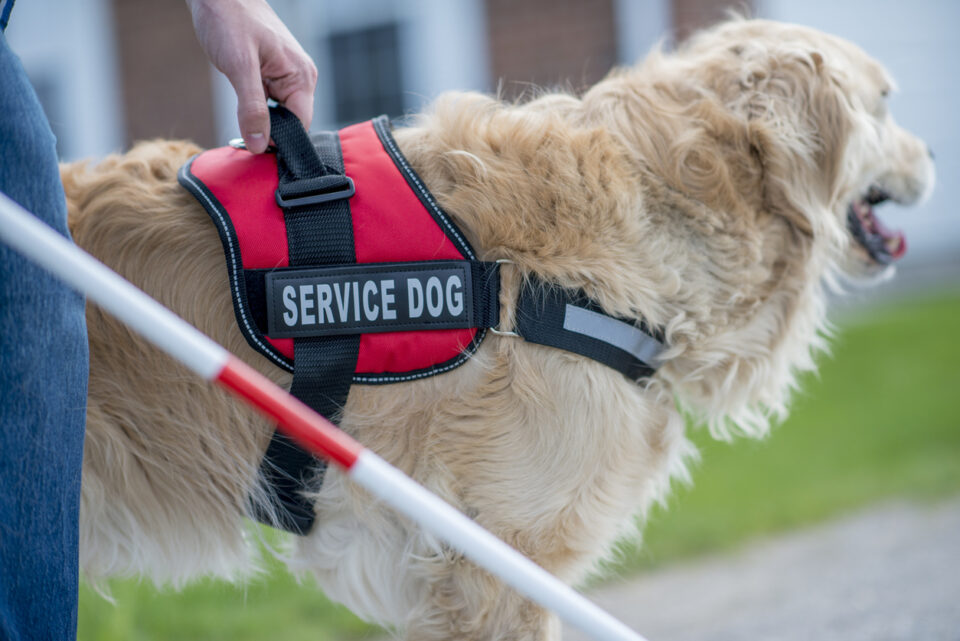Assistance Animal Integrity Act
Date
April 26, 2023
Read Time
4 minutes
Share

This article was originally published in 2019. We provide this information as a reminder of the requirements of the Assistance Animal Integrity Act as they apply to condos and community associations.
On August 23, 2019, the Assistance Animal Integrity Act (the “Act”) was signed into law by Governor J.B. Pritzker. The Act, which is effective starting January 1, 2020, supplements existing Federal law regarding reasonable accommodation requests for assistance animals (i.e., service animals and emotional support animals).
Federal law makes clear that housing providers, including condominium associations, must reasonably accommodate residents with disabilities, including allowing a resident to keep an assistance animal—even if the association’s declaration or rules and regulations expressly prohibit animals—provided that the requester submits documentation that is legally sufficient to support such request. The Act provides the following clarifications and guidance to condominium boards of directors and management who receive reasonable accommodation requests for assistance animals to ensure they meet their obligations to residents with disabilities:
- “Therapeutic Relationship” Required. The Act requires that the person submitting documentation in support of a reasonable accommodation request for an assistance animal have a “therapeutic relationship” with the requesting resident. The term “therapeutic relationship” is defined in the Act as “the provision of medical care, program care, or personal care services, in good faith, for and with actual knowledge of, an individual’s disability and that individual’s disability related need for an assistance animal[.]” If the documentation provided is insufficient to establish a “therapeutic relationship”, the Act authorizes associations to request additional information “describing the professional relationship between the person and the individual with a disability.”
- Non-Medical Service Agency May Provide Supporting Documentation. The Act also spells out who may provide supporting documentation for an assistance animal. In particular, the following persons are authorized to deliver such documentation: (a) “a physician or other medical professional”; (b) “a mental health service provider”; or (c) “a non-medical service agency or reliable third party who is in a position to know about the individual’s disability.” Unfortunately, the Act does not define or provide examples of a “reliable third party who is in a position to know about the individual’s disability”. Instead, determining whether a third party is “reliable” or “in a position to know about the individual’s disability” will be made on a case-by-case basis based on the individual facts and circumstances.
- Certificates / Licenses Are Insufficient. The Act combats potential abuses by expressly stating that a “therapeutic relationship” does not include an entity that provides a document that “purports to confirm, without conducting a meaningful assessment of a person’s disability or a person’s disability-related need” for an assistance animal. As such, obtaining an emotional support animal certification, license or similar document on the internet for a nominal fee without a meaningful assessment will not be sufficient under the Act for a reasonable accommodation for an assistance animal. The Act also makes clear that boards may verify the authenticity of documentation submitted in support of a reasonable accommodation request for an assistance animal.
- Standard Forms Permitted, But Not Required. Per the Act, boards may ask that a reasonable accommodation request for an assistance animal be made on a standard form; however, boards cannot deny a request because the requester did not use such form (i.e., standard forms cannot be mandatory).
- Multiple Assistance Animals. If a resident seeks a reasonable accommodation for more than one assistance animal, the Act permits the board to require documentation that establishes the disability-related need for each animal, unless the need for an animal is apparent.
- Conflicting Disability-Related Needs. Boards that receive conflicting requests based on disability-related needs of residents (one resident requests an assistance dog in connection with their disability while another resident has a severe dog allergy, for example) have been stuck between the proverbial “rock and hard place”. The Act acknowledges this tension by permitting a board to “consider the documented disability-related needs of other residents” when determining whether a requested accommodation is reasonable (and thus required); however, the Act does not offer a clear-cut solution, as a reasonable accommodation request cannot be denied “solely” due to the disability-related needs of another resident. Instead, boards must attempt to “balance the disability-related needs of all residents,” which may be a near impossible task.
Boards should exercise an abundance of caution when evaluating reasonable accommodation requests for assistance animals, especially because Federal law allows a requester to recover monetary damages as well as their attorneys’ fees from a condominium association if it is determined that their assistance animal request was improperly denied. As always, LP is ready and available to provide guidance to boards regarding reasonable accommodation requests for assistance animals.
Filed under: Community Association
Related insights
March 05, 2025
Treasury Department Announces Suspension of the Corporate Transparency Act, Exemption for U.S. Citizens and Domestic Reporting Companies: What Do Community Associations Need To Know?
Read MoreJanuary 24, 2025